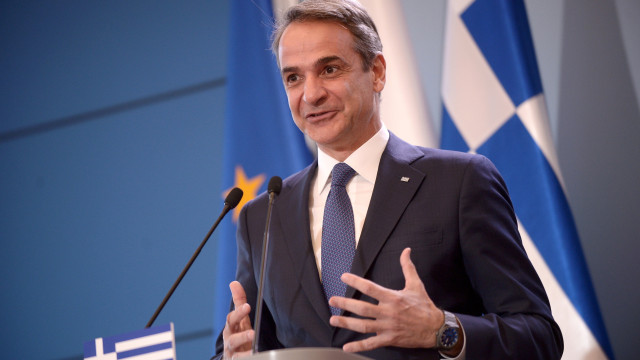I hope that all those things that we heard during the election campaign will not be the official position of the new government of North Macedonia. If that happens, we'll have a problem. This is what Greek Prime Minister Kyriakos Mitsotakis said in an interview with the local Alpha TV, BGNES reported.
Mitsotakis admitted that he is following with concern the statements of the leadership of VMRO-DPMNE, but at the same time he is awaiting with great interest the official position of the new prime minister and how he will use the name of his country.
The Greek Prime Minister recalled that when he was in opposition, he did not accept the Prespa Treaty, but now he is obliged to observe it as part of his state duties. According to him, "the new government in Skopje will have to do the same thing".
"I want to be extremely clear. I personally did not agree with the Treaty of Prespa and in particular with the definitions of "Macedonian language" and "Macedonian nation". But I accepted it, as continuity in the state and admitted, despite my disagreement with this treaty, that I have to respect it. The same demands are valid for the new leadership of North Macedonia. I hope that all those things that we heard during the election campaign will not be the official position of the new government of North Macedonia. Macedonia. If that happens, we will have a problem," Mitsotakis said.
BGNES reminds that the Prespa Treaty was signed on June 17, 2018 in the village of Nivitsi on the shore of the Great Prespa Lake. The agreement was signed by the foreign ministers of both countries, Nikos Kodzias and Nikola Dimitrov, in the presence of Prime Ministers Alexis Tsipras and Zoran Zaev. The agreement ended a long-standing dispute over Macedonia's name between authorities in Skopje and Athens.
The signing was also attended by UN Special Representative Matthew Nimitz, as well as EU High Representative for Foreign Affairs Federica Mogherini and Enlargement Commissioner Johannes Hahn. /BGNES
Mitsotakis called on the Republic of Macedonia to respect the Prespa Treaty







